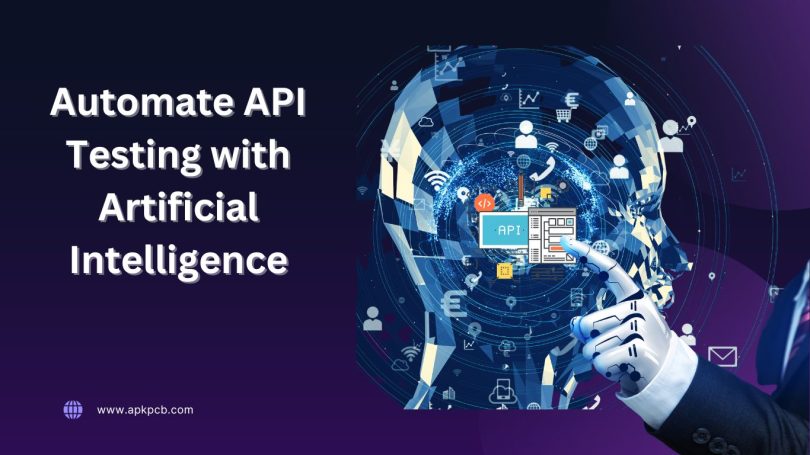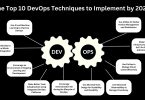Introduction:
Quality assurance in software development is paramount, especially concerning the reliability of Application Programming Interfaces (APIs). The process of API testing, particularly for extensive and intricate APIs, often proves to be laborious and intricate. In this context, the integration of Artificial Intelligence (AI) offers a promising solution.
The influence of AI and ML is pervasive, transforming various sectors, including software development and testing. The implication of AI and ML methodologies in testing practices has emerged as a pivotal paradigm shift. It brings substantial value to software programs by optimizing their operational efficiencies and modernizing their testing strategies.
The Influence of Generative AI on API Testing:
Growing Complexity: Generative AI has the ability to craft APIs of considerably greater complexity compared to conventional APIs. Testing these APIs thoroughly becomes a more challenging task as a result.
Emergence of New Security Challenges: Generative AI can be harnessed to develop APIs susceptible to innovative attacks. Testers must remain vigilant regarding these unforeseen risks and conduct testing to identify vulnerabilities.
Demand for Specialized Expertise: The testing of generative AI APIs necessitates specialized skills and expertise. Consequently, businesses might have to recruit or train technical testers to ensure the security and reliability of their APIs.
Assessing the Impact of AI on API Testing:
AI’s influence on API testing can yield both positive and negative outcomes. On one hand, it enables the generation of genuine and intricate data, allowing APIs to be tested in ways previously unattainable. This comprehensive testing ensures APIs are examined with a diverse range of data, facilitating the early detection of potential errors. Additionally, generative AI facilitates the automation of API testing, thereby saving time and effort for QA analysts.
Conversely, generative AI can be employed to produce malicious data, exploiting security vulnerabilities within APIs. Furthermore, generative AI models may exhibit biases, leading to inaccurate test outcomes.
The judgment on whether generative AI is beneficial or detrimental to API testing hinges on its appropriate application. When used correctly, it serves as a valuable tool to enhance the quality and security of APIs. However, improper usage can pose significant security threats.
Benefits of API Testing Using AI:
Below are several potential advantages associated with utilizing generative AI in API testing…
Broader Coverage: Generative AI can generate test cases encompassing a wider array of scenarios than manual testing allows. This comprehensive testing reduces the incidence of bugs and errors.
Invalid Input Generation: By leveraging Generative AI, invalid, incomplete or unexpected data can be created, which has the potential to expose flaws or malfunctions in APIs.
Malicious Input Creation: Generative AI can craft malicious input to exploit vulnerabilities in other systems, aiding in identifying potential security risks.
Stress Testing: Realistic traffic patterns generated through generative AI can be employed for stress testing APIs. This enables early detection of bottlenecks or performance issues, preempting impact on real users.
Fuzz Testing: Utilizing random data, this technique identifies unexpected errors in APIs, enhancing the robustness of the testing process.
Performance Testing: Generative AI facilitates the generation of realistic test cases under various load conditions and environments. This approach is more likely to reveal performance issues than traditional methods of performance testing.
Reduced Time-to-Market: Automation of tasks such as test generation and execution accelerates API testing, enhancing the overall time-to-market for products and services.
Enhanced Security: Attack scenarios can be simulated and generative AI can mimic the behavior of an attacker. This aids in identifying security vulnerabilities in APIs and provides valuable insights to security teams.
Improved Compliance: Generative AI can assess APIs for compliance with industry regulations, assisting businesses in avoiding costly fines and penalties.
How to Automate API Testing with AI:
There are a number of different ways to automate API testing with AI. AI can analyze the API documentation and generate test cases covering all the scenarios that need to be tested.
AI can automatically send requests to the API and verify the responses. This can be done for both unit tests and end-to-end tests.
Examples of AI-Powered API Testing Tools…
There are a number of different AI-powered API testing tools available. Some popular examples include the following…
Parasoft SOAtest: Parasoft SOAtest is a comprehensive API testing tool that uses AI to automate test case generation and execution.
Parasoft SOAtest architecture opens in a new window
Parasoft SOAtest architecture
Katalon Studio: Katalon Studio is a free and open-source API testing tool that includes a number of AI-powered features, such as test case generation and test data generation.
Katalon Studio interface opens in a new window
Katalon Studio interface
Testsigma: Testsigma is a cloud-based API testing tool that uses AI to automate test case generation and execution.
Testsigma dashboard opens in a new window
Testsigma dashboard
Tips for Automating API Testing with AI:
Below are several guideline tips for automating API testing using AI…
- Commence the process by pinpointing the specific facets of your API testing procedure conducive to automation. This foundational step plays a crucial role in selecting the most fitting AI-powered API testing tool customized to meet your specific requirements.
- Utilize a hybrid approach incorporating AI-powered API testing tools and manual testing methods. AI-powered API testing tools can automate repetitive tasks, but manual testing is still important for testing complex scenarios and edge cases.
- Invest in training for your testers. Testers need to understand how to use AI-powered API testing tools effectively.
- Monitor your AI-powered API testing process closely. AI-powered API testing tools are still under development, so it’s important to monitor your test results closely to ensure that your tests are running as expected.
Implementing these suggestions enables the automation of your API testing through AI, resulting in enhanced efficiency, precision and cost-effectiveness in your testing efforts.
Conclusion:
In summary, the integration of Artificial Intelligence (AI) in API testing brings both challenges and advantages. Generative AI enhances testing complexity and demands specialized skills, yet it enables comprehensive testing, early error detection and automation, saving time for QA analysts. Benefits of Generative AI in API testing include broader test case coverage, stress testing, robustness through techniques like Fuzz Testing and accelerated time-to-market. Choosing the right AI-powered tools, combining them with manual testing, providing comprehensive training and vigilant monitoring are essential strategies. Utilizing artificial intelligence for automating API testing contributes to heightened efficiency, precision and cost-effectiveness within the reality of API testing. Many different AI-powered API testing tools are available, so testers can choose the tool that best suits their needs.








